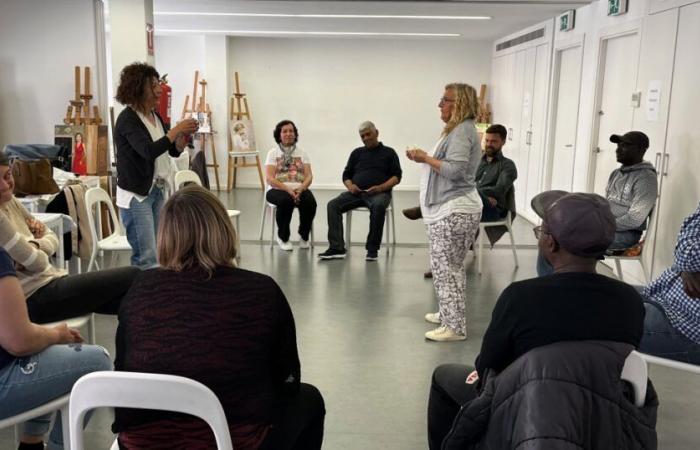A group of 10 homeless people participate weekly in a Mindfulness workshop organized by the City Council’s social inclusion area. This initiative, which has been renewed for a new edition, seeks to provide Practical tools for stress management, emotions and anxiety in vulnerability situations. Mindfulness, a technique based on paying conscious attention to the present without judgments, is demonstrating positive results in improving the emotional well -being of the participants.
The deputy mayor and councilor for action and social innovation, Carlos rinse, highlighted the excellent reception of this program: “Through the creation of a space for security and tranquility, we can influence processes of improvement of the welfare of homeless people.” The sessions are taught by a specialist in Mindfulness with the support of the Professional Housing Team of Inclusion, alternating between interior spaces and natural environments such as the mitjana or the banks of the Segre River, taking advantage of the additional benefits provided by contact with nature.
The project works fundamental aspects such as the improvement of attention, conscious decision making and effective stress management. It also emphasizes the development of skills to manage difficult emotions and reduce anxiety, all aimed at increasing subjective well -being and promoting self -care among participants in vulnerability.
Mindfulness benefits for people in a situation of social exclusion
Regular Mindfulness practice offers numerous benefits for people in vulnerability. Recent studies have shown that these techniques can significantly reduce cortisol levels, stress -related hormone, and help regulate the nervous system. For homeless people, who frequently face chronic stress conditions, these tools are especially valuable.
The program develops competencies in three main areas: conscious attention, emotional and self -care management. Participants learn to recognize negative thought patterns and to develop an attitude of acceptance and compassion towards themselves. “These skills are transferable to many everyday situations and can have a significant impact on the quality of life,” explain those responsible for the program.
The sessions in natural environments provide an additional component by combining the benefits of mindfulness with those of nature, something that specialists call “full attention in green spaces.” This combination has shown promising results in reducing anxiety and depression symptoms in various international studies.
-An integral approach to people in vulnerability
The Mindfulness workshop is part of a broader project of well -being, care and self -care for homeless people who develop the area of municipal social inclusion. This comprehensive approach seeks to serve people at all vital moments, including accompaniment in disease processes and end of life, an aspect frequently unattended in conventional homeless care programs.
Social vulnerability and lack of housing not only affect basic material needs, but also have a deep impact on mental and emotional health. According to data from the National Statistics Institute (INE), in Spain there are more than 28,000 homeless, many of whom present mental health problems associated with their situation. Initiatives such as this workshop respond to the need to address these problems from a holistic perspective.
The project customizes interventions according to the specific needs of each group, recognizing heterogeneity within the group of homeless people.
How does the mindfulness work in stress reduction?
Mindfulness or full attention works directly on stress -related neurological mechanisms. By practicing the conscious observation of thoughts, emotions and body sensations without judging them, brain areas related to emotional regulation are activated and the activity of the tonsil is reduced, brain structure linked to the fight or flight response.
For homeless people, who live in a constant state of uncertainty and precariousness, learning to manage stress can mean a significant difference in their daily well -being. In addition, the techniques learned allow them to recover a certain sense of control over their internal experience, even when external circumstances remain adverse.
Regular practice generates changes that go beyond the moment of the session, developing a greater capacity for conscious response in difficult situations. Participants report improvements in their ability to face complex administrative procedures, manage interpersonal conflicts or manage frustration against everyday obstacles.






